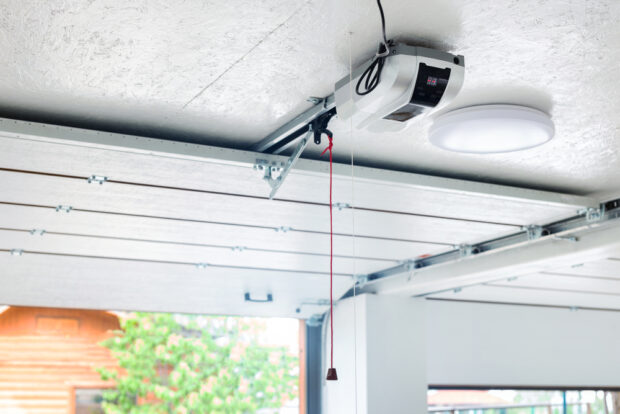A malfunctioning garage door can disrupt your daily routine and compromise your home’s security. If you find yourself asking, “Why won’t my garage door close?” you’re not alone. Many homeowners face this issue, and the good news is that there are often simple fixes. Let’s explore the common reasons your garage door won’t close and the steps you can take to resolve the problem.
Understanding How a Garage Door Works
Before diving into the reasons your garage door won’t close, it’s essential to understand the basic mechanics. Garage doors rely on several interconnected components, including:
- Springs: These balance the door’s weight.
- Tracks: Guide the door as it opens and closes.
- Sensors: Detect obstacles and ensure safety.
- Opener Motor: Powers the door’s movement.
When any of these components malfunction, your garage door may refuse to close. Identifying the culprit is the first step to a solution.
Common Reasons Your Garage Door Won’t Close
1. Obstructed Sensors
Garage doors are equipped with photo-eye sensors to prevent accidents. These sensors detect objects in the door’s path and stop it from closing if something is detected. If your garage door isn’t closing, sensor issues could be the cause.
Troubleshooting:
- Check for dirt or debris on the sensors. Clean them gently with a soft cloth.
- Ensure the sensors are aligned. Misaligned sensors can’t communicate properly.
- Verify the sensor’s LED lights are steady and not blinking. Blinking lights indicate a problem.
2. Blocked Tracks
The tracks guide the door as it moves up and down. Any debris or obstruction can prevent smooth operation.
Troubleshooting:
- Inspect the tracks for any visible blockages.
- Use a damp cloth to wipe away dirt or grime.
- Ensure the tracks are not bent or misaligned.
3. Damaged Springs
Springs play a critical role in balancing the door’s weight. If a spring is broken or worn out, the door might not close properly.
Troubleshooting:
- Look for visible gaps or breaks in the springs.
- Avoid attempting DIY repairs; broken springs are dangerous and require professional attention.
4. Remote Control Issues
Sometimes, the problem isn’t with the door itself but with the remote control or wall switch.
Troubleshooting:
- Replace the remote’s batteries and test again.
- Ensure you’re within range of the opener.
- Reprogram the remote if necessary by following the manufacturer’s instructions.
5. Manual Lock Engagement
Garage doors have manual locks that can be engaged accidentally, preventing the door from closing.
Troubleshooting:
- Check the lock mechanism on the door. If it’s engaged, unlock it and try closing the door again.
6. Limit Setting Problems
The limit settings control how far the garage door travels. If the settings are incorrect, the door might think it has hit the ground prematurely.
Troubleshooting:
- Refer to your garage door opener’s manual to adjust the limit settings.
- Test the door after making adjustments.
7. Power Disruption
A lack of power to the opener can render your garage door inoperable.
Troubleshooting:
- Ensure the opener is plugged in and the outlet is functioning.
- Check your home’s circuit breaker for tripped switches.
DIY Solutions vs. Professional Help
Some garage door problems can be fixed with a little troubleshooting, while others require professional garage door services. Here’s how to decide:
When to DIY:
- Cleaning and aligning sensors.
- Removing debris from tracks.
- Replacing remote batteries.
When to Call a Professional:
- Broken springs or cables.
- Persistent alignment issues.
- Opener motor malfunctions.
Professionals have the tools and expertise to handle repairs safely and efficiently, saving you time and potential injuries.
Preventing Future Problems
Regular maintenance can prevent many of the issues that cause a garage door to stop closing. Here are some tips:
1. Inspect and Clean Regularly
- Wipe down sensors and tracks monthly.
- Remove any visible debris around the door.
2. Lubricate Moving Parts
- Apply lubricant to the door’s springs, rollers, and tracks every six months.
- Use a silicone-based lubricant for best results.
3. Test the Door’s Balance
- Disconnect the opener and manually open the door halfway.
- A balanced door will stay in place; if it doesn’t, the springs may need adjustment.
4. Check the Auto-Reverse Feature
- Place a small object, like a block of wood, under the door.
- Close the door; it should reverse upon contact with the object.
- If it doesn’t, consult a professional.
Why Timely Repairs Are Crucial
Ignoring a garage door that won’t close can lead to more significant problems, including:
- Security Risks: An open garage door is an invitation to intruders.
- Increased Repair Costs: Small issues can escalate if left unaddressed.
- Safety Hazards: Faulty components can cause accidents or injuries.
By addressing issues promptly, you can save money and keep your home secure.
Final Thoughts
When your garage door won’t close, it’s natural to feel frustrated. However, understanding the potential causes and solutions can empower you to address the issue confidently. Whether it’s cleaning the sensors, checking the tracks, or calling a professional, there’s always a path to resolution.
Remember, regular maintenance is your best defense against future problems. By keeping your garage door in top condition, you can ensure it operates smoothly for years to come. If you’re ever in doubt, don’t hesitate to consult a professional who can provide expert assistance.


